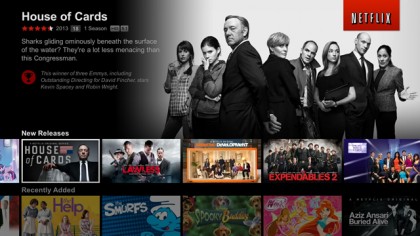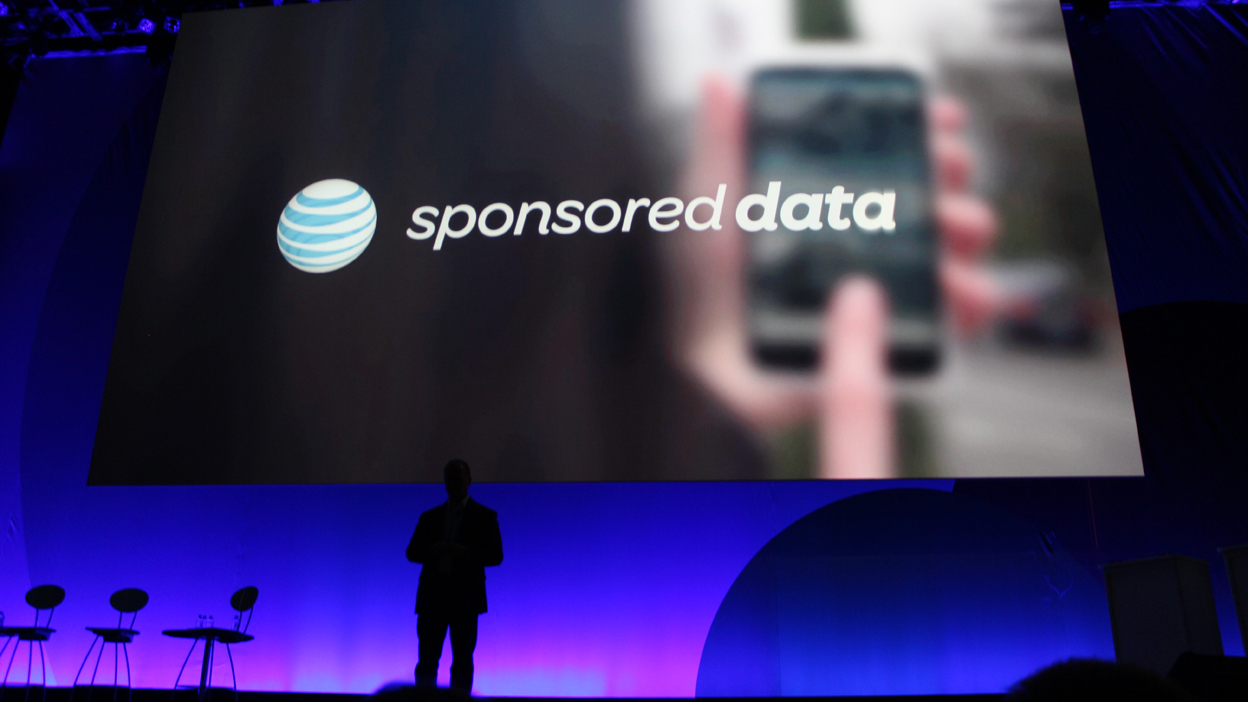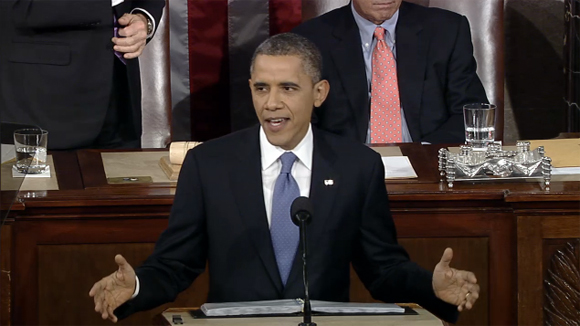What court's decision on FCC net neutrality rules means for you
The open internet is dead for the time being. Here's why

- On December 14, 2017, the US FCC (Federal Communications Commission) repealed net neutrality rules, sparking an outcry among startups, NGOs, but also the public in general, in the US or abroad. VPNs can actually allow you to get around Net Neutrality controls set by ISPs. Here is a list of the best VPN providers we've tested.
Update: The FCC and a group of Senators are looking to re-instate the net neutrality rules, so we've included those facts and what it means.
Internet content is no longer treated equally in 2014, as the Federal Communications Commission Open Internet Order ran into a closed courtroom door In January in the net neutrality case of Verizon v. FCC.
This controversial ruling in favor of internet service providers (ISPs) strikes down government regulations that had prohibited their discrimination of data that passed through their pipelines.
The mistake of the FCC was that it classified ISPs as "information service providers" in 2002. More than a decade later, the court's 3-0 decision saw through the agency's attempt to adopt rules as if ISPs were of the more regulated "common carriers" distinction applied to telecom companies.
Now Verizon, AT&T, Time Warner or whomever you get your internet from can legally increase the speed of content that conforms to their business needs and, without rebuke, slow down or even block content that rivals their own services.
If YouTube or Netflix are hogging up all of the bandwidth, for example, and your ISP has its own half-baked on-demand video service, it could essentially sabotage the download speeds of YouTube and Netflix and favor its own service.
This, as you can imagine, bodes poorly for content consumers, a.k.a. the American public.
Get daily insight, inspiration and deals in your inbox
Sign up for breaking news, reviews, opinion, top tech deals, and more.
FCC, Senators work to restore net neutrality
FCC chairman Tom Wheeler and a handful of Democratic Senators aren't staying neutral in their net neutrality stance, insisting that the rules need to be re-instated for the good of consumers.
Wheeler said in a recent speech that he'll be "outlining" a plan to bring back the protections of net neutrality in the coming days, according to CNET. The chairman didn't go into detail about his plan, but it goes without saying that such a move is legally and politically tricky.
"We respect your desire to take a careful approach," said Senators Al Fraken, Ron Wyden, Jeff Merkley, Ed Markey and Richard Blumenthal in a letter addressed to Wheeler.
"While it would be premature to reject any particular path forward, we urge you to act with expediency. Consumers, entrepreneurs and innovators deserve to know their right to view or use the content and service of their choice online will be protected."
From an open internet to a tiered internet
Proponents of net neutrality rules are alarmed at this verdict because it could create a tiered internet in which ISPs become the gatekeepers to what you can and can't access on the web.
The scenario in which Netflix is treated differently from a cable provider's own video on-demand service isn't so far fetched. It actually happened in 2012 and caught the attention of Netflix CEO and Comcast subscriber Reed Hastings.
Hastings noticed that Comcast didn't count the data used to stream video through its own Xfinity app on Xbox 360. A button click away, the video game console's Netflix, Hulu Plus and HBO Go apps did count against the data cap instituted by Comcast, giving Xfinity an unfair advantage.

Scenarios like this make it clear that the choice as to which service is best may no longer be in the hands of users. ISPs could heavily influence your online habits from here on out.
Netflix has said it would incite a 44 million member protest if ISPs violate Net Neutrality and force it to pay for preferred streaming rights. But if this failed, it could mean the buck gets passed to subscribers in the form of higher Netflix prices.
That's not only bad for the well-funded Netflix and their members, it's devastating for the garage-based app developer with a legitimately innovative idea. The next Snapchat could easily be overshadowed by a deep-pocketed copycat like Facebook's inferior Poke app if it were too slow or counted against your data plan. Facebook would have the money to copy and compete, but two Stanford University students with an original idea would not.
Ultimately, the biggest losers would be content consumers - you and everyone who uses and enjoys internet content.
Deep-pocket access
More than slowing down and all-out blocking of apps or websites, data cap workarounds are the more likely way ISPs will attempt to challenge the principles of the open internet rules at first.
It's a pay-to-play model that AT&T recently unveiled at CES 2014 as part of its "Sponsored Data" program. It lets content providers pay for your wireless data when using their app.

That seems like a win-win deal, especially with AT&T marketing it as "toll-free data" for users akin to a 1-800 number. It just passes the fee onto content owners, not you. Then you realize that only app companies with deep pockets will be able to afford to pay this new toll both.
AT&T said its forthcoming Sponsored Data idea is being implemented to cater to both small and large content providers, but the situation is far from comfortable for net neutrality advocates.
After all, you're being asked to trust companies that have an interest in putting profits first - companies that have abolished their slate of texting plan choices in favor a higher-priced all-or-nothing plan. Those companies.
President Obama responds
Also uncomfortable with January's net neutrality ruling is President Barack Obama, who has previously vowed to keep the protections in place.

Echoing these sentiments of the FCC chairman, a spokesperson for President Obama told The Hill that the BlackBerry-wielding Command-in-Chief "remains committed to an open internet, where consumers are free to choose the websites they want to visit and the online services they want to use, and where online innovators are allowed to compete on a level playing field based on the quality of their products.
"As we continue to review the ruling, we remain committed to working with the Federal Communications Commission (FCC), Congress, and the private sector to preserve a free and open internet."
Al Franken on net neutrality
Besides writing the letter to Wheeler, Minnesota Senator and open internet proponent Al Franken has taken even bolder stances against the ruling.
"Anyone who goes online to shop, promote their business, or simply to connect with the world should be worried about today's opinion," said Franken in a press release. "A Minnesota small business should load as quickly as the website of a large corporation.
"Net neutrality is the common-sense idea that big corporations like Verizon, Comcast, and Time Warner shouldn't control who gets to innovate, communicate, or start a business on the internet. The FCC needs to respond immediately in a way that keeps the internet open to all of us, not just big corporate interests."
The case against net neutrality
It's much more difficult to find a loud voices against net neutrality, though ISPs like Verizon and Time Warner have cast it as a free market debate.
"The court found that the FCC could not impose last century's common carriage requirements on the internet, and struck down rules that limited the ability of broadband providers to offer new and innovative services to their customers," wrote Verizon in a statement.
That said, all major ISPs are agreeing that this week's ruling won't change consumers' ability to access and use the internet as they do now.
However, net neutrality opponents don't see any problem with that, as Verizon, AT&T, Time Warner and other providers have built and invested in the technology to keep us connected.
This free market stance is often coupled with a distrust of the government to properly regulate the internet.
As much as you don't want to trust ISPs, the thought of putting the internet in the hands of the same government that allegedly worked with Microsoft to decrypt your emails and Skype messages as part of its NSA Prism surveillance program is also unsettling to some.
What's next
The FCC's Wheeler hasn't concretely laid out how he plans to overcome the his agency's net neutrality defeat, though an appeal is always possible.
The commission could also set up new rules to attempt to reclassify internet service providers as "common carriers" in an effort to better regulate them. In the current divided Congress, that would be a long and arduous debate.
With the open internet ruling as it stands, internet users aren't expected to see major changes in the near term. In fact, all ISPs are pledging to keep the internet unchanged for users and are still being required by the court to inform subscribers about their throttled data plans.
None of this means that ISPs aren't drawing up plans to execute pay-to-play schemes to force content providers to pay for faster access to users' devices. For them, it ultimately boils down to taking money from the subscriber and charging content providers for the data you use. Double dipping may become the new norm in the valley-filled, formerly level playing field.
